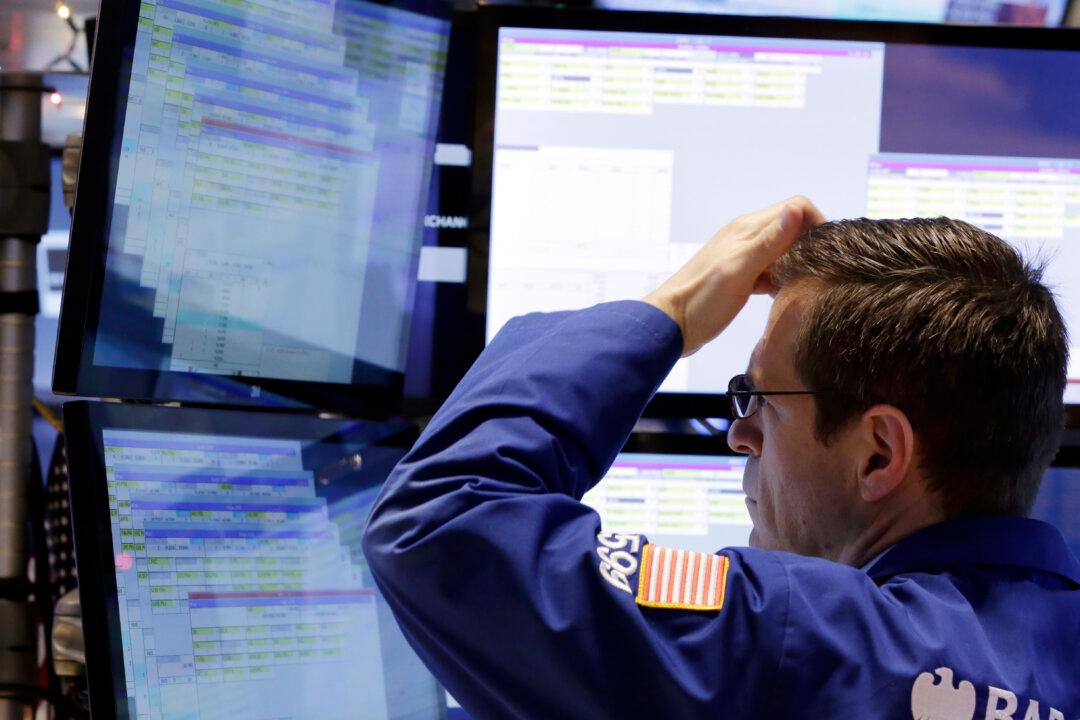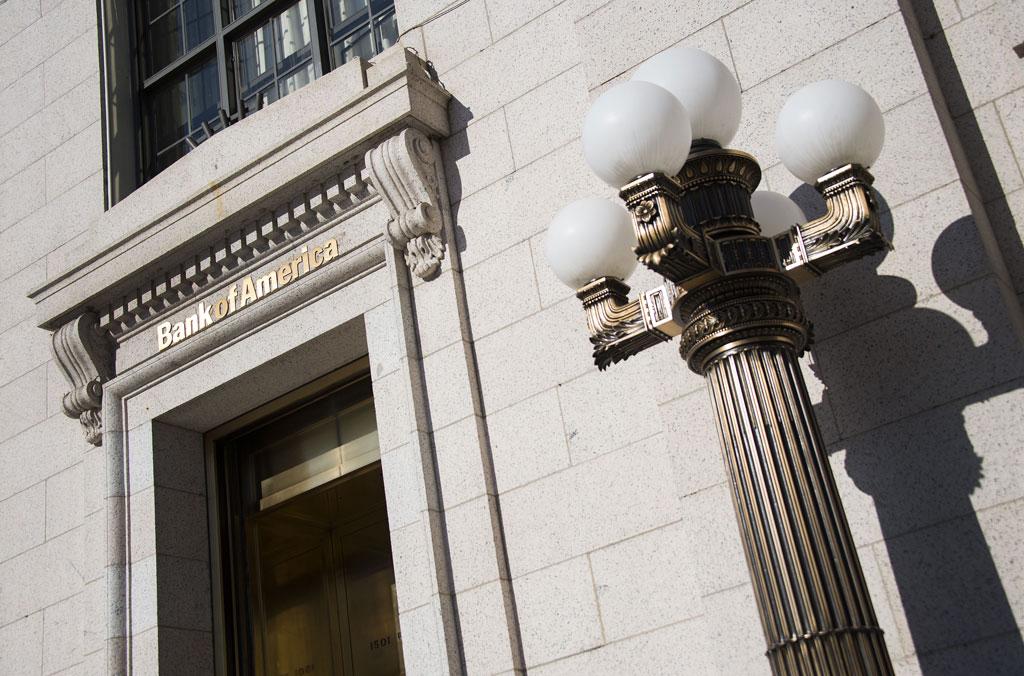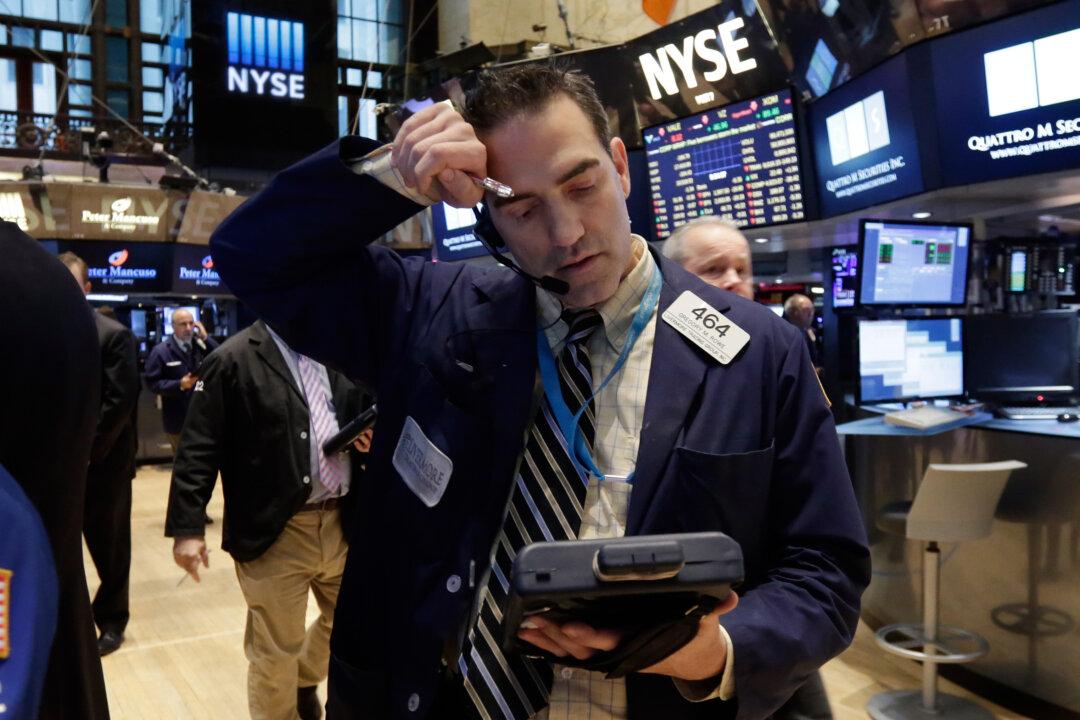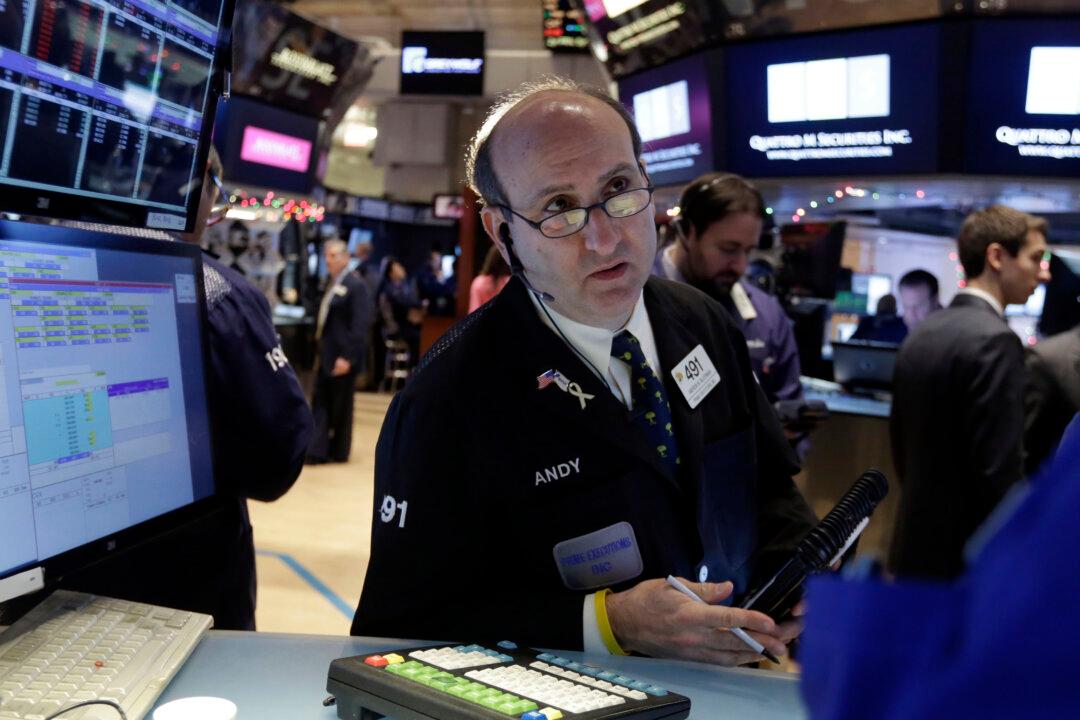NEW YORK—U.S. stocks rose late Thursday morning after Europe’s central bank announced a plan to shore up that region’s economy. The euro fell against the dollar and European stock markets turned higher following the news.
KEEPING SCORE: The S&P 500 was up 15 points, or 0.7 percent, at 2,047 as of 11:20 a.m. The stock-market benchmark finished with its third straight day of gains on Wednesday, its longest win streak in the new year.
The Dow Jones industrial average rose 119 points, or 0.7 percent, to 17,675 while the Nasdaq climbed 41 points, or 0.9 percent, to 4,709.
VOILA: In a much-anticipated move, the European Central Bank said it would start spending 60 billion euros on government and private bonds every month. That’s slightly more than what markets expected. The ECB said the program will run 18 months, from this March until September of next year, but gave itself the option of extending the program if necessary.
RESPONSE: “It’s all about the ECB today,” said Jeff Kravetz, regional investment strategist at U.S. Bank Wealth Management. “This is a very positive development. They have a reputation of overpromising and under-delivering, and today they delivered.”
OVER THERE: Germany’s DAX rose 0.5 percent and France’s CAC-40 gained 1 percent. Britain’s FTSE 100 rose 0.5 percent.
ENERGY: Benchmark U.S. crude continued to languish after falling more 60 percent in the past seven months amid rising supplies and weaker demand. The contract was down 70 cents at $47.09 a barrel on the New York Mercantile Exchange. Brent crude, the international benchmark, fell 50 cents at $48.45 a barrel on the ICE exchange in London.
CURRENCIES: The euro weakened against the U.S. dollar, sliding to $1.1488. A weakened euro makes European goods cheaper, which could help boost exports from the region and lift inflation from dangerously low levels. The dollar index, which measures the greenback against a basket of major currencies, climbed 0.5 percent, putting it up 3.4 percent for the month.
DOUBTS: “It’s hard not to see this as a positive, but there will be lingering doubts,” said Chris Rupkey, chief financial economist at the Bank of Tokyo, in a note to clients. “They should not be telling people this will be a two-year program. It makes people think the economy won’t be right for two years.”
ASIA SCORECARD: Hong Kong’s Hang Seng rose 0.7 percent, and South Korea’s Kospi was flat. Japan’s Nikkei 225 rose 0.3 percent and China’s Shanghai Composite advanced 0.5 percent.
From The Associated Press



